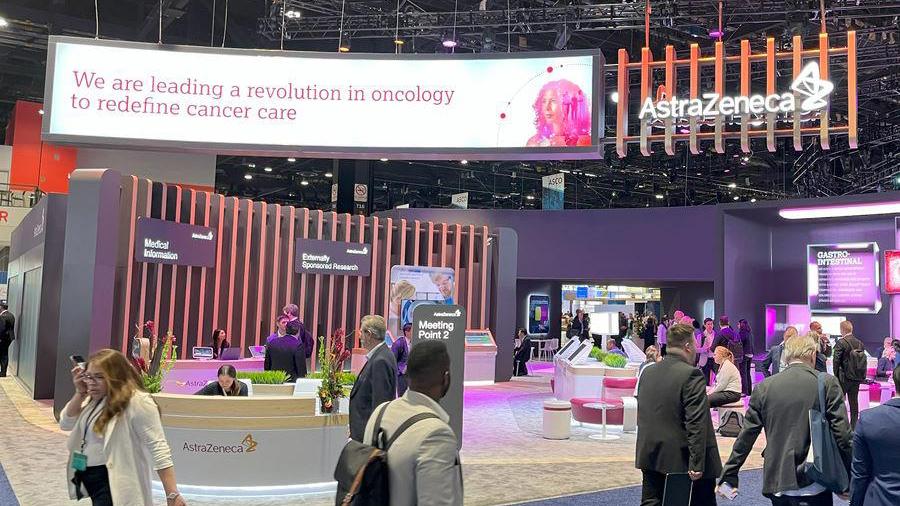ASCO: AZ gets a practice-changing win in lung cancer

The question of whether adjuvant treatment with AstraZeneca’s Tagrisso can help patients with EGFR-positive non-small cell lung cancer live longer has finally been answered.
At ASCO, updated results from the ADAURA trial reveal that Tagrisso (osimertinib) cut the risk of death by 51%, with 88% of patients with early-stage NSCLC that was treated with surgery still alive five years later, compared to 78% of the comparator group who received placebo.
It’s been three years since AZ first won FDA approval for Tagrisso in this indication on the back of an earlier readout from the ADAURA, showing that Tagrisso improved disease-free survival (DFS) versus placebo when added to discretionary adjuvant chemotherapy. Since then, sales have accelerated to $5.4 billion in 2022, making it the drugmaker’s biggest product.
DFS is often used as a basis for approval of cancer drugs, but overall survival (OS) is considered a far more robust indicator of efficacy, so ADAURA’s new readout should lay to rest any lingering reservations among oncologists about the role of Tagrisso in this setting.
Tagrisso is the first EGFR inhibitor to improve OS as an adjuvant therapy for early-stage EGFR-positive NSCLC, and the results shore up its leadership position in the EGFR inhibitor class.
Nathan Pennell of the Cleveland Clinic told reporters at ASCO that the results are “unequivocal” and “put to rest the question about whether we should be using our most effective treatment in these people.” Most patients in this situation will eventually see their cancer return.
It was widely anticipated that Tagrisso could show an improvement in OS, given a DFS improvement of 83% at the first readout and a median DFS of nearly five and a half years when an ADAURA update was presented at the ESMO congress last September. The size of the improvement means that the current “one-size fits all” treatment of this type of cancer with adjuvant chemo should be abandoned, said Pennell.
ADAURA investigator Roy Herbst of Yale Cancer Center, who presented the results of the study to a packed auditorium at ASCO, said the OS benefit “instils confidence that adjuvant Tagrisso is the standard of care” for these patients and will “broaden treatment access” – provided access to EGFR testing can be made widely available to screen patients.
Some oncologists have continued to rely on adjuvant chemo for EGFR-positive NSCLC, in order to keep Tagrisso and other drugs in the EGFR class as a back-up treatment option, as there are limited options for disease recurrence. AZ has previously estimated that could be the case with around a third of patients.
The company is also testing Tagrisso as a pre-surgery (neoadjuvant) therapy for EGFR-positive NSCLC in the NeoADAURA study, due to generate results next year.













